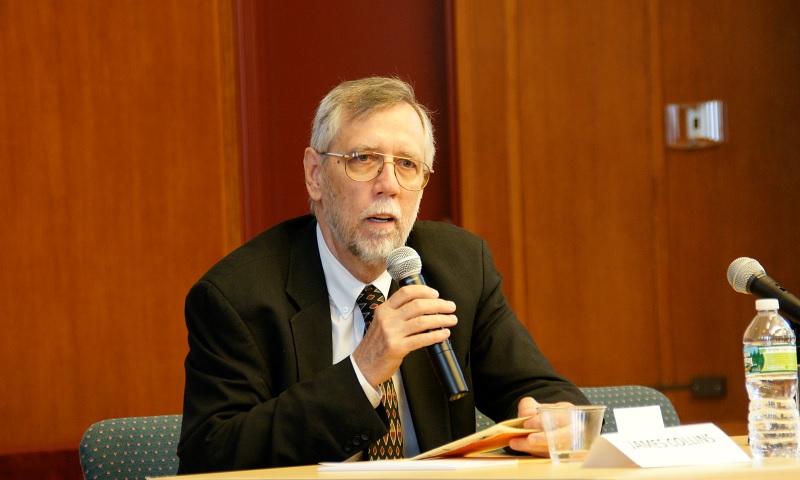
1. This year, we are celebrating the International Day of Older Persons under the theme "Leaving No One Behind: Promoting a Society for All". How can older persons campaign for their rights and raise awareness of the issues that are important to them?
There are a number of things older persons can do to campaign for their rights. First, they should recognize that they enjoy all the rights enumerated in the 1948 Universal Declaration of Human Rights. Older persons are rights holders – and their governments have the duty to promote and protect their rights. If any of their rights is not being honored, they can alert their government to correct the situation. While this can be done on an individual basis, it is effective and at times better to seek the assistance of a local or national group that focuses on the right in question, on older persons’ rights, or on human rights in general. It may be an older persons’ organization (HelpAge-Kenya and AARP in the USA are examples), a national human rights commission, or an organization focused on an issue like housing or food or migration or voting. If they want to campaign for the rights of older people at the international level, they can ask organizations they are members of (1) to lobby nationally for an international Convention on the Human Rights of Older Persons and (2) to join and work with the Global Alliance for the Rights of Older Persons (http://www.rightsofolderpeople.org/) that is advocating for such a Convention.
2. Discrimination and social exclusion still persist among older persons. How can the UN, Member States and other stakeholders work together to ensure the full participation of older persons?
Older persons still today too often suffer discrimination and social exclusion because of their age, by individuals, corporations or even by governments. It is found and experienced in many domains, including housing, health care, employment, finance and insurance (See the UN Secretary-General’s December 2013 report, E/CN.5/2014/4). While these ills can and should be addressed at the local and national levels, we believe they need to be addressed at the international level as well. As detailed in presentations over the past three years to the UN General Assembly’s Open-ended Work Group on Ageing, the existing international human rights framework has proven inadequate in combatting age discrimination and exclusion (See the UN Secretary-General’s July 2014 report, A/69/180). We in the ageing community therefore believe banning age discrimination at the international level though a binding International Convention on the Human Rights of Older Persons is the best solution. While we are encouraged that the number of Member States of the UN supporting a Convention is growing, support from additional Member States is needed. Again, local and national ageing groups and other members of civil society need to advocate in national capitols as well as at the UN for this Convention. The UN system itself also could examine itself to eliminate any internal age discriminatory policies and practices.
3. As you know, the UN is in the process of preparing the post-2015 sustainable development agenda. How can we ensure that the rights of older persons are included in this agenda?
Older persons and issues of ageing, I am glad to say, are included in the set of sustainable development goals (SDGs) and targets for 2016-2030 proposed by the UN General Assembly’s Open Working Group on Sustainable Development Goals (see its August 2014 Report, A/68/970). These SDGs will supersede the 2001-2015 Millennium Development Goals (MDGs) that overlooked ageing and older persons. One of the key criticisms of the MDGs was that they were not all inclusive; in contrast one of the key criteria for the success of the SDGs is that they “leave no one behind”. The word “all” appears in many goals and targets; “of all ages” in others. Monitoring progress by age group is critical, so we are pleased that the accountability target includes building capacity for data disaggregation by age as well as by other characteristics. The SDGs are the center of the post-2015 development agenda. In the coming months the General Assembly will be finalizing the proposed SDGs, the financing mechanisms to achieve them and the monitoring and accountability framework, to be adopted in September 2015. We in the ageing community, again, need to work together with others to lobby national governments in capitols to support these inclusive Goals and Targets. We can and should work jointly with other groups in civil society, including youth, women, indigenous persons and farmers and the business community in this effort to achieve a better “society for all ages”. A global civil society public campaign, action/2015, to promote and support an inclusive and transformative post-2015 sustainable development agenda has been organized. For more information or to join, go to www.action2015.org
BIO James Collins
James Collins is Chairperson of the NGO Committee on Ageing in New York City and a representative to the United Nations of the International Council on Social Welfare. He is also a member of the NGO Committee for Social Development. In these positions he advocates for the interests of older persons at the United Nations headquarters in New York.
Since retiring in 2000, he has also been an active advocate for the elderly in many local organizations, including the New York Statewide Senior Action Council, the Joint Public Affairs Committee for Older Adults (JPAC), New York Network for Action on Medicare and Social Security, and the New York Citizens’ Committee on Aging.
Before retiring, Mr. Collins worked for 25 years for the New York City Human Resources Administration and 10 years for Lutheran Medical Center in Brooklyn, NY. He has an MPA from the New York University Wagner School of Public Service.
 Welcome to the United Nations
Welcome to the United Nations